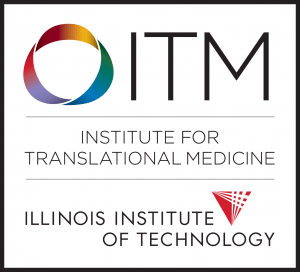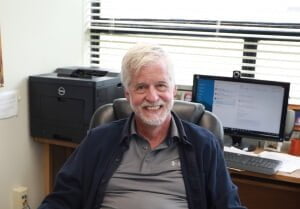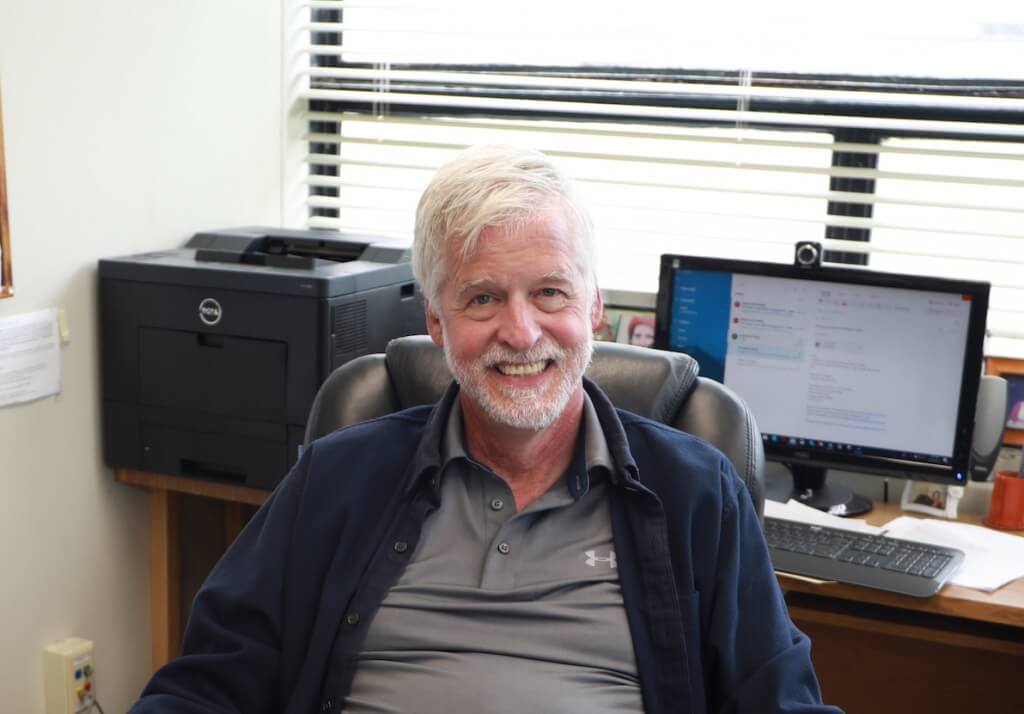
The Institute for Translational Medicine (ITM) welcomes a new Illinois Institute of Technology (Illinois Tech) site leader this week.
 Patrick Corrigan, PsyD will represent Illinois Tech on ITM leadership committees and help connect its researchers with ITM opportunities in funding, education, and partnerships to accelerate their work. The ITM is a partnership between the University of Chicago and Rush in collaboration with Advocate Health Care, Illinois Tech, Loyola University Chicago, and NorthShore University HealthSystem that makes research breakthroughs happen and gets those discoveries into the real world faster. With the help of ITM resources, he said he hopes to move Illinois Tech’s world-class health innovations into the real world to help people as soon as possible. Corrigan is replacing the former Illinois Tech site lead Eunice Santos, who accepted a position at University of Illinois at Urbana-Champaign.
Patrick Corrigan, PsyD will represent Illinois Tech on ITM leadership committees and help connect its researchers with ITM opportunities in funding, education, and partnerships to accelerate their work. The ITM is a partnership between the University of Chicago and Rush in collaboration with Advocate Health Care, Illinois Tech, Loyola University Chicago, and NorthShore University HealthSystem that makes research breakthroughs happen and gets those discoveries into the real world faster. With the help of ITM resources, he said he hopes to move Illinois Tech’s world-class health innovations into the real world to help people as soon as possible. Corrigan is replacing the former Illinois Tech site lead Eunice Santos, who accepted a position at University of Illinois at Urbana-Champaign.
“We are a tech school and we have some very strong biomedical engineers doing great work,” said Corrigan, distinguished professor of psychology at Illinois Tech’s Lewis College of Human Sciences. “This is an opportunity for them to become involved [in the ITM’s work].”
Corrigan’s work in psychology focuses on the stigma and discrimination that people with serious mental illness face. Corrigan has written more than 400 articles and authored or edited 15 books.
He said he is looking forward to applying his experience in community health to help people live their healthiest life with the ITM.
And Corrigan is no stranger to the ITM. He has presented at the ITM’s Trial Recruitment and Innovation Office (TRIO) studio, where researchers from the six ITM institutions can get free study design and recruitment help from a team of experts. A major component of the studio is the design methodology approach to problem-solving fueled by Illinois Tech Design.
Corrigan said the ITM will help get Illinois Tech’s cutting-edge technologies out of the lab and into Chicago communities with the ITM and its network of local and national academic medical centers.
“How do you take good ideas developed in medical school and bring them to the real world, where people don’t act according to the rules?” Corrigan said. “We’re very keen about community-based care, and working with the ITM is … an opportunity to advance that.”
About the Institute for Translational Medicine (ITM)
![]() The Institute for Translational Medicine (ITM) helps you live your best life by making research breakthroughs happen and getting those discoveries into the real world to improve your health as soon as possible.
The Institute for Translational Medicine (ITM) helps you live your best life by making research breakthroughs happen and getting those discoveries into the real world to improve your health as soon as possible.
The ITM is a partnership between the University of Chicago and Rush in collaboration with Advocate Health Care, the Illinois Institute of Technology (Illinois Tech), Loyola University Chicago, and NorthShore University HealthSystem that’s fueled by about $35 million in grants from the National Center for Advancing Translational Sciences at the National Institutes of Health through its Clinical and Translational Science Awards (CTSA) Program.
We’re part of a network of more than 55 CTSA Program-supported hubs across the country working to slash the time it takes to develop and share new treatments and health approaches. We work with you and for you to make participating in health research easy, so that together we improve health care for all.
Join the movement and learn more about how we help researchers, physicians, community members, industry, government organizations, and others. Visit us at chicagoitm.org and connect with us on Facebook, Twitter, Instagram, YouTube, and LinkedIn @ChicagoITM.
For more information, contact Sara Serritella, Director of Communications, at sara@chicagoitm.org.
This project is supported by the National Center for Advancing Translational Sciences (NCATS) of the National Institutes of Health (NIH) through Grant Numbers UL1TR002389, KL2TR002387, and TL1TR00238 that fund the Institute for Translational Medicine (ITM). The content is solely the responsibility of the authors and does not necessarily represent the official views of the NIH.



